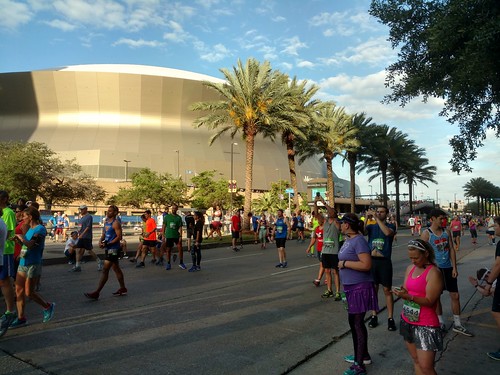In the video, first made public by the liberal super PAC American Bridge, Sensenbrenner responds to a woman asking about Congress’s decision to roll back Obama-era internet privacy laws.It's hard to imagine anyone would find this credible in 2017. Of course people have got to use the internet. At least anyone who wants to live anything resembling what we would consider a normal modern life has to use it. We use the internet to do our work. We use it to apply for work. Even the most menial jobs hire via online application. We use it to apply for loans. We use it to apply for benefits. We use it to apply to school. We use it to do our taxes. We use it to talk to our friends, family, and neighbors. We use it to read the news. We use it to watch TV. The internet is in our TVs It's in our phones. It's in our cars, our speakers, our air conditioners and microwaves (sort of, maybe).
“Well, you know, nobody has got to use the internet,” Sensenbrenner told the woman.
Look, this is stupid. It's a self-evident fact that the internet is a necessity, not a luxury for anyone expecting to engage in even the most modest of lifestyles. Unless you are a retired Jedi living off the grid in a cave, you're gonna have to use it for stuff.
The implication thrown around by people like Sensenbrenner or by Jason Chaffetz who wants you to choose between your iPhone and health insurance, is that not everyone deserves even the most modest of modern lifestyles and that it's fine if our public policy actively excludes people from that.
Sensenbrenner's iteration is a direct denial of the notion that the internet should be regulated as a public utility. Republicans especially, are heavy into denying that even public utilities should be regulated as public utilities these day. The disastrous results there should be a clear enough warning against further privatizing the public commons on the internet.
Under the regulatory regime signed into law this month, ISPs, the police, advertisers, and anybody who can pay for it, get to know everything about what you do on the internet... which is to say, they can know pretty much everything you are up to ever. Even day to day activity as passive as reading and searching, is fodder for commercial exploitation or state inquiry. Meanwhile, it isn't quite the same the other way around.
WEST PALM BEACH, Fla. — The White House announced Friday that it would cut off public access to visitor logs revealing who is entering the White House complex and which officials they are meeting, breaking with the Obama administration’s practice and returning a cloak of secrecy over the basic day-to-day workings of the government.So even as the private lives of individuals are exposed to a wider scope of surveillance and commercial exploitation, the public records of the public's business conducted in the public's spaces becomes even more opaque. This is what happens when we abandon the idea of public goods and services. Everything that can be appropriated by the rich and powerful will be.
I thought about all of this again when I saw this weekend that the AZ story about Tom Benson's theft of La Salle Street had been picked up by WWLTV. Remarkably, a security guard tried to run the TV station's photographers out of the space as they tried to shoot some footage there.
Meanwhile, public access to the street has been blocked at times, usually for private or special events run by the LSED’s property management contractor, SMG. That has added to confusion about whether the 1400 block of LaSalle remains a city street. When WWL-TV set up a camera this week on what used to be the LaSalle Street roadway, a security guard from the Zelia-owned Benson Tower office building told the photographer he couldn’t shoot video there.Even if any of the pretense were true, if the street was clearly Benson's private property, that's some high level arrogance. The open air environs of perhaps the city's most iconic building are gonna draw photographers. Here are runners lining up for Saturday's Crescent City Classic just aiming their little camera phones any old direction. Hopefully they didn't accidentally land on anything classified.
“Actually, all this is private property. It’s not a street,” the guard said, his voice captured on video.

By the way, I finished in 48:31. That's my best time in over a decade. Maybe not entirely relevant information, but it was bound to come out sooner or later given the realities of today's internet. Race organizers fit each runner's number with an RFID tag and post the results on their website even thought Jim Sensenbrenner keeps telling them they don't have to.
No comments:
Post a Comment